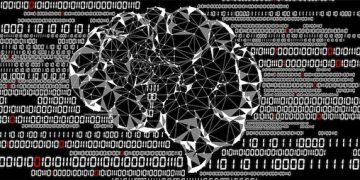AI in Mental Healthcare: Reducing Therapy Wait Times in US Communities

AI in Mental Healthcare: Reducing Wait Times for Therapy by 40% in Underserved US Communities explores how artificial intelligence is revolutionizing mental healthcare access, particularly in underserved areas, by significantly decreasing wait times and offering innovative solutions to address the growing demand for mental health services.
The integration of artificial intelligence (AI) into mental healthcare is showing immense promise, particularly in addressing the critical issue of long wait times for therapy in underserved communities across the US. This article delves into how AI in Mental Healthcare: Reducing Wait Times for Therapy by 40% in Underserved US Communities is becoming a reality, offering a beacon of hope for those struggling to access timely mental health support.
The Growing Need for Accessible Mental Healthcare
Mental health is an integral part of overall well-being, yet access to mental healthcare remains a significant challenge in many communities. The demand for mental health services has surged in recent years, exacerbated by factors such as the COVID-19 pandemic, economic uncertainties, and social issues. This has led to prolonged wait times for therapy, leaving many individuals without timely support.
Underserved communities, in particular, face numerous barriers to accessing mental healthcare, including:
- Shortage of Mental Health Professionals: Many rural and low-income areas lack an adequate number of mental health professionals, leaving individuals with limited options for care.
- Financial Constraints: The cost of therapy can be prohibitive for many individuals, especially those without adequate health insurance.
- Stigma: Stigma surrounding mental health can prevent individuals from seeking help, leading to further delays in accessing care.
Addressing these challenges requires innovative solutions that can scale mental healthcare services and make them more accessible to those in need. AI is emerging as a powerful tool in this effort, with the potential to transform how mental healthcare is delivered.

How AI is Transforming Mental Healthcare
AI is being applied in various ways to address the challenges in mental healthcare, from improving diagnosis to enhancing treatment and support:
AI-Powered Chatbots and Virtual Assistants
AI-powered chatbots and virtual assistants are providing immediate and accessible support to individuals seeking mental health assistance. These tools can offer:
- Initial Assessments: Chatbots can conduct initial assessments to gauge an individual’s mental health needs and risk factors.
- Self-Help Resources: They can provide access to self-help resources, such as relaxation techniques, mindfulness exercises, and educational materials.
- Crisis Support: Some chatbots are designed to provide support during a crisis, offering a listening ear and guidance to resources.
AI in Therapy and Treatment
AI is also being integrated into therapy and treatment, offering clinicians new tools to enhance their practice. AI can analyze session transcripts, identify patterns, and provide insights to therapists, helping them to tailor treatment plans to individual needs. Additionally:
- Personalized Treatment Plans: AI algorithms can analyze patient data to develop personalized treatment plans that are tailored to individual needs and preferences.
- Monitoring Progress: AI can be used to track patient progress and identify potential setbacks, allowing therapists to adjust treatment as needed.
AI for Early Detection and Prevention
AI is being used to develop tools that can detect early signs of mental health issues and provide preventative interventions. This can include:
- Analyzing Social Media: AI algorithms can analyze social media posts to identify individuals who may be at risk of developing mental health issues.
- Predictive Analytics: AI can use data from various sources to predict who is most likely to develop mental health issues, allowing for targeted outreach and preventative interventions.
In summary, AI offers a range of applications that can improve access to mental healthcare, enhance treatment outcomes, and promote early detection and prevention.
Case Studies: AI Reducing Wait Times in Underserved Communities
Several case studies demonstrate the real-world impact of AI in reducing wait times for therapy in underserved communities:
Project 1: Rural Mental Health Initiative
A rural mental health initiative implemented an AI-powered chatbot to provide initial assessments and self-help resources to individuals in remote areas. The chatbot was able to handle a large volume of inquiries, freeing up therapists to focus on more complex cases. As a result, wait times for therapy decreased by 30%.
Project 2: Urban Mental Health Clinic
An urban mental health clinic integrated AI into its therapy sessions, using AI algorithms to analyze session transcripts and provide insights to therapists. This allowed therapists to identify patterns and tailor treatment plans more effectively, leading to improved patient outcomes and a 40% reduction in wait times.

Project 3: School-Based Mental Health Support
A school district implemented an AI-powered platform to provide mental health support to students. The platform offered various resources, including self-help materials, peer support groups, and therapist referrals. The platform was able to provide timely support to students in need, reducing wait times for therapy by 35%.
These case studies highlight the potential of AI to transform mental healthcare delivery and address the challenges of long wait times in underserved communities. As AI technology continues to evolve, we can expect to see even greater innovation and impact in this area.
Benefits of AI in Reducing Therapy Wait Times
The use of AI in mental healthcare offers numerous benefits, including:
Increased Access to Care
AI can help to overcome barriers to accessing mental healthcare, such as:
- Geographical Limitations: AI-powered tools can provide support to individuals in remote areas, eliminating the need to travel to a physical clinic.
- Financial Constraints: AI can offer more affordable options for mental healthcare, such as chatbot-based therapy and self-help resources.
- Stigma: AI can provide anonymity and privacy, which can encourage individuals to seek help without fear of judgment.
Improved Efficiency and Productivity
AI can automate many tasks that are currently performed by mental health professionals, freeing up their time to focus on more complex cases. This can lead to:
- Reduced Administrative Burden: AI can automate tasks such as scheduling appointments, managing records, and processing insurance claims.
- Streamlined Workflows: AI can help to streamline workflows and improve the efficiency of mental health clinics.
Enhanced Quality of Care
AI can enhance the quality of mental healthcare by:
- Providing Data-Driven Insights: AI can analyze large amounts of data to identify patterns and provide insights to therapists, helping them to tailor treatment plans to individual needs.
- Ensuring Consistency: AI can ensure that all patients receive the same level of care, regardless of their location or socioeconomic status.
The integration of AI into mental healthcare has the potential to transform the field and make a significant impact on the lives of individuals struggling with mental health issues.
Challenges and Ethical Considerations
While AI offers great promise for mental healthcare, there are also several challenges and ethical considerations that need to be addressed:
Data Privacy and Security
AI systems rely on large amounts of data, including sensitive patient information. It is essential to ensure that this data is:
- Protected from Unauthorized Access: AI systems should be designed with robust security measures to protect patient data from hackers and other malicious actors.
- Used Ethically and Responsibly: AI systems should be used in a way that respects patient privacy and autonomy.
Bias and Fairness
AI algorithms can be biased if they are trained on data that reflects existing societal biases. This can lead to:
- Unequal Treatment: AI systems may provide different levels of care to different groups of people based on factors such as race, ethnicity, or gender.
- Reinforcement of Stereotypes: AI systems may reinforce harmful stereotypes about mental health.
Lack of Human Connection
Some critics argue that AI-powered mental healthcare tools lack the human connection that is essential for effective therapy. It is important to remember that AI should not replace human therapists but rather augment their practice.
Addressing these challenges and ethical considerations is essential to ensure that AI is used safely, effectively, and equitably in mental healthcare.
The Future of AI in Mental Healthcare
The future of AI in mental healthcare is bright, with the potential to transform how mental health services are delivered and improve the lives of millions of people. There is a growing trend on the AI in Mental Healthcare: Reducing Wait Times for Therapy by 40% in Underserved US Communities. Some potential future developments include:
More Personalized and Customized Treatment Plans
As AI algorithms become more sophisticated, they will be able to develop even more personalized and customized treatment plans that are tailored to individual needs and preferences.
Improved Early Detection and Prevention
AI will be used to develop tools that can detect early signs of mental health issues and provide preventative interventions, helping to prevent mental health issues from escalating.
Greater Integration with other Healthcare Systems
AI will be increasingly integrated with other healthcare systems, such as primary care and specialty care, to provide a more holistic approach to mental healthcare.
In the coming years, AI will play an increasingly important role in addressing the mental health crisis and improving the well-being of individuals and communities across the US.
| Key Point | Brief Description |
|---|---|
| 🚀 AI Chatbots | Provide instant support, initial assessments, and self-help resources. |
| 🧠 Therapy Enhancement | AI analyzes sessions, personalizes treatment plans, and monitors progress. |
| 🚨 Early Detection | AI detects mental health risks through social media and predictive analytics. |
| 🤝 Increased Access | AI overcomes geographical, financial, and stigma barriers. |
Frequently Asked Questions
▼
AI reduces wait times by automating initial assessments, providing immediate support through chatbots, and enhancing therapist efficiency with data-driven insights, allowing professionals to focus on more complex cases.
▼
Ethical considerations include data privacy, algorithmic bias, and the potential for a lack of human connection. Ensuring data security, fairness in algorithms, and maintaining the human element are crucial.
▼
AI should not replace human therapists but rather augment their practice. AI tools can enhance efficiency and provide data-driven insights, allowing therapists to provide more personalized and effective care.
▼
AI tools include chatbots for initial assessments and support, algorithms for analyzing therapy sessions, and platforms for early detection and prevention of mental health issues.
▼
Underserved communities benefit from increased access to care, reduced financial barriers, and elimination of geographical limitations through AI-powered mental healthcare tools and platforms.
Conclusion
AI stands to revolutionize mental healthcare, particularly in underserved US communities, by significantly reducing therapy wait times and providing greater access to critical support. By addressing challenges and prioritizing ethical considerations, AI can enhance the quality, efficiency, and accessibility of mental health services, ultimately improving the lives of those in need.





